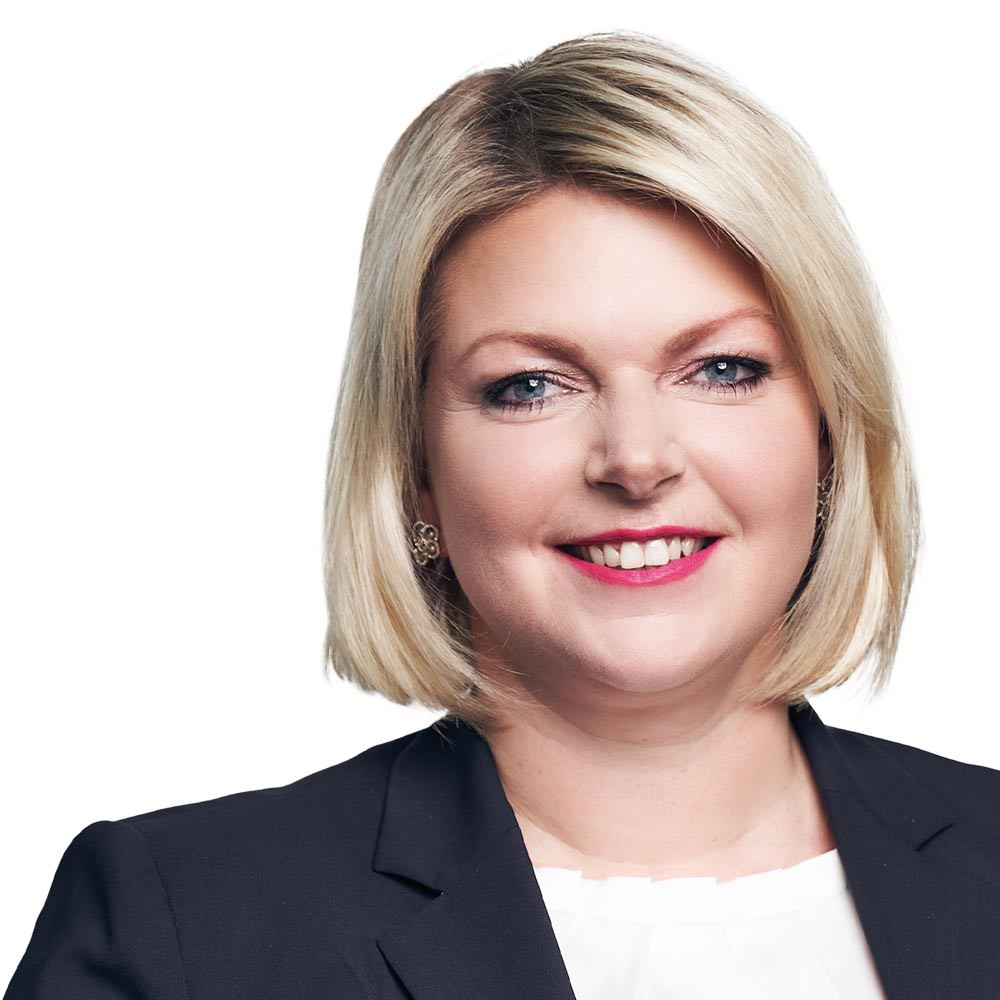The current Annual General Meeting (“AGM”) season will go down as a largely peaceful one in the history of German corporate governance as only a few companies presented their Management Board or Supervisory Board remuneration systems at the AGM. But even among these few, the results were mixed - both in terms of remuneration systems and remuneration reports. Institutional investors and proxy advisors are taking an increasingly critical look at board remuneration. Good results now are therefore no guarantee for the future. And in 2025, around half of the companies in the DAX family will have to present their Management Board remuneration system at the AGM.
The hkp///group Corporate Governance Advisors Nina Grochowitzki and Dr. Pia Lünstroth take stock of current developments and look at the challenges for Say on Pay in 2025.
Ms. Grochowitzki, Ms. Dr. Lünstroth, after a largely peaceful AGM season in terms of Management Board and Supervisory Board remuneration, why do you assume that we will see a completely different picture in 2025?
Nina Grochowitzki: It is the regulatory framework that is creating the prospect of a more eventful AGM season in 2025. The most important factor here is the Act on the Implementation of the Second Shareholders' Rights Directive, ARUG II, which came into force in January 2020. It stipulates that – as long as there are no significant changes that require an earlier vote - remuneration systems for the Management Board and Supervisory Board must be submitted to shareholders for approval at the AGM at least every four years.
Dr. Pia Lünstroth: And as many companies decided to go into mandatory Say on Pay for the first time at the 2021 AGM, this four-year period has now lapsed. We will therefore see many remuneration systems put to the vote in the coming year.
What dimensions are we talking about?
Dr. Pia Lünstroth: According to our overview, around half of the companies listed in the DAX, MDAX and SDAX will bring the issue of Management Board remuneration to the agenda, either because the four-year deadline has passed or because the remuneration system and/or remuneration report have been met with little approval or even rejection. Thus, this number alone suggests that we are heading into a more eventful Say on Pay year 2025.
Is it really necessary to revise the current remuneration system for the 2025 AGM?
Nina Grochowitzki: In light of the regulatory requirements, an unchanged remuneration system could also be presented. However, investors are looking more critically than ever at remuneration matters, as there have been some substantial developments in this area.
Are you alluding to the consideration of sustainability criteria?
Nina Grochowitzki: In fact, this aspect has become a major focus of investor interest. Some investors are now calling for ESG targets to be explicitly anchored in the long-term incentive, i.e. the long-term variable remuneration.
Dr. Pia Lünstroth: In addition, clawback regulations and the demand for share ownership guidelines are key components of investor requirements.
Does this mean that investor expectations are the main driver of change?
Dr. Pia Lünstroth: They are only one side of the coin. Next to the capital market-oriented perspective, the internal perspective is even more important. Supervisory Boards should address the question of whether the existing remuneration system implements the current corporate strategy. The company's own sustainability strategy, which many companies have updated in recent years, should also be taken into account.
… in addition to the environmental and governance aspects, the sustainability strategy increasingly includes the S, meaning social sustainability and therefore also employee-specific issue.
Nina Grochowitzki: … and also includes external social issues through the Supply Chain Act. This is a new quality that must and will also be reflected in remuneration. In our view, the long-term variable remuneration component is the appropriate element in the context of Management Board remuneration.
Dr. Pia Lünstroth: In addition to the topic of sustainability, the question of the discretionary decision-making scope of Supervisory Boards in matters relating to Management Board remuneration is becoming increasingly important. The Supervisory Board can and must examine which options for flexibility can be provided within the remuneration system. Transparency and accountability must continue to be ensured.
Has market practice also developed over the past four years?
Nina Grochowitzki: Market best practice usually follows the requirements of investors to a large extent. In addition, changes in companies' steering mechanisms become apparent. In light of the past crises, liquidity plays a more important role than in previous years.
Does the statutory obligation to resubmit the remuneration system also apply to Supervisory Board remuneration?
Nina Grochowitzki: Yes, the remuneration system for the Supervisory Board must also be put to a vote at least every four years or in the event of significant changes.
Supervisory Board remuneration has led a rather quiet existence in comparison to Management Board remuneration. Is this obligation for a regular approval by the AGM justified?
Dr. Pia Lünstroth: From our point of view, yes. Companies can and should take the opportunity to review whether the remuneration of the Supervisory Boards is in line with the expanded professional requirements and increased liability risk, as well as the overall increased density of tasks due to crises and in general transformation. Professional supervision and strategic support requires professional remuneration, which also includes the level of remuneration.
… and which at the same time attracts more international candidates?
Dr. Pia Lünstroth: Competitiveness for international candidates is another separate issue that needs to be considered in light of the increasing internationalization of business models. But remuneration alone is not enough. With our two-tier governance model, which we consider to be superior to single-tier governance for reasons of effectiveness, we are coming up against limits, particularly with candidates from the Anglo-Saxon world. In addition, it is still rare for Supervisory Board meetings to be held entirely in English. But yes, remuneration in line with the task and responsibilities is an important element in the professionalization and further internationalization of Supervisory Board work.
Are investors more open to increasing the remuneration of Supervisory Board members than Management Board members?
Nina Grochowitzki: This cannot be said in general terms. In both cases, it should be noted that increases must be justified in a differentiated manner. One way of making remuneration increases more acceptable to the capital market, especially for Supervisory Board members, is to introduce shareholding requirements, i.e. to remunerate Supervisory Board members partly in shares or to oblige them to hold shares of the company during their term of office in order to emphasize strategic support more strongly in addition to the indispensable control function.
How can companies prepare for Say on Pay 2025?
Dr. Pia Lünstroth: The topic should not be put on the back burner. Timely discussion is generally recommended, especially if the relevant internal coordination processes have not yet run one hundred percent smoothly in the past. For example, the review of the current remuneration system with the corresponding changes should be discussed at the autumn meeting of the Supervisory Board.
Nina Grochowitzki: In this regard, we offer our clients a special Quick Check that compactly identifies areas for improvement and derives proposals for adjustments. On this basis, the engagement with investors can then be started, who should be involved in a revision at an early stage in order to achieve a positive voting result. Particularly in view of the many Say on Pay votes in the upcoming AGM season, early shareholder engagement is essential.
Thank you very much for the interview!



